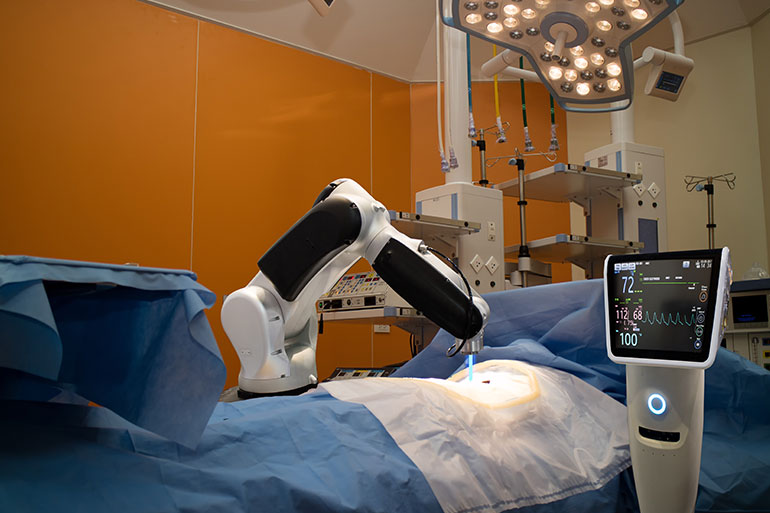
AI’s Evolving Impact on Healthcare: Diagnosis, Treatment, and BeyondAI’s Evolving Impact on Healthcare: Diagnosis, Treatment, and Beyond Artificial intelligence (AI) is transforming the healthcare industry at an unprecedented pace, revolutionizing aspects from diagnosis and treatment to patient management and drug discovery. Here’s an overview of its evolving impact: Diagnosis: AI algorithms can analyze vast amounts of patient data, including medical images, electronic health records, and wearable sensors, to identify patterns and make predictions. This enables early detection and more accurate diagnoses of diseases such as cancer, Alzheimer’s, and heart conditions. Treatment: AI-powered systems can assist in treatment planning and decision-making. For example, AI can help determine the optimal dosage and timing for medications, predict patient responses to different therapies, and guide surgical procedures with greater precision. This leads to personalized and more effective treatments. Patient Management: AI can monitor patient health remotely, track their progress, and provide personalized guidance. Virtual assistants and chatbots can assist patients with appointment scheduling, medication reminders, and symptom management. This improves patient engagement and empowers them to take control of their health. Drug Discovery and Development: AI accelerates drug discovery by analyzing genetic data, screening compounds, and predicting potential drug interactions. It enables faster and more efficient identification of potential drug candidates and reduces the cost and time associated with drug development. Beyond Diagnosis and Treatment: The impact of AI in healthcare extends beyond diagnosis and treatment. It is also revolutionizing: * Medical Education: AI-powered simulations and virtual reality provide immersive training experiences for healthcare professionals. * Precision Medicine: AI algorithms can predict disease risk based on individual genetic profiles, enabling personalized preventive measures. * Health Administration: AI can optimize hospital operations, streamline billing processes, and improve patient flow. * Mental Health Care: AI-powered tools can provide access to mental health services, offer personalized therapy, and support crisis prevention. Ethical Considerations: As AI continues to advance, ethical considerations become crucial. It is essential to address issues such as data privacy, bias in algorithms, and the potential impact on healthcare accessibility. Proper regulations and guidelines must be established to ensure the responsible and beneficial use of AI in healthcare. Conclusion: AI is rapidly reshaping the healthcare landscape, offering the potential for significant improvements in diagnosis, treatment, and overall patient outcomes. As AI continues to evolve, it will empower healthcare providers, improve accessibility, and lead to a more personalized and data-driven approach to health. However, it is imperative to consider and mitigate ethical concerns to ensure that AI is used responsibly and to the benefit of all.
Posted inNews